From the Chinese Press
Updated: 2013-07-10 08:10
(China Daily)
|
||||||||
Make hot weather grant mandatory
The spate of high temperatures in recent days has sparked a heated public debate on giving special allowance to workers for working in exceptionally hot weather. Surveys show that apart from employees who do not dare to ask their employers for the allowance, there are many who do not even know about the welfare provision, says an article in Guangzhou Daily. Excerpts:
It is surprising that a special allowance which local governments and the media keep talking about is ignored by employers, even though the allowance for outdoor workers is quite small: a daily extra pay of 20-30 yuan ($3.3-4.9) each in most regions.
The allowance for working in exceptionally hot weather belongs to the same category of workers' welfare as annual leave. Employers have taken advantage of the loopholes in relevant laws and regulations to ensure that even if they don't pay the special allowance to workers they can escape punishment. Therefore, it is important for the authorities to take steps to plug those loopholes.
Although the regulations prescribe certain punishments for employers defaulting on the allowance, the enforcement is weak. Labor unions should shoulder their responsibility of protecting workers' rights and interests, and ensure that they are not deprived of their lawful allowance.
The problem is that many workers who work outdoors are not attached to any union and, hence, the protection of their legal rights and interests depends on higher-level labor unions. Besides, organizations such as construction workers' association should be set up across the country to fight for the rights of disadvantaged groups of workers.
Use of banned pesticides illegal
Seventeen Chinese farmers were arrested from a collective farm in Sakhalin, Russia, recently on suspicion of using banned chemical pesticides, ripening agents and genetically modified (GM) seeds. The workers may be Chinese, but they don't deserve sympathy for indulging in such malpractices, says an article in Beijing News. Excerpts:
The use of banned insecticides, ripening agents or GM seeds both in Russia and China is illegal. According to the law, any individual or organization producing or selling food containing disease-causing micro-organisms, pesticides and veterinary drug residue or heavy metal contamination beyond the standard limit faces imprisonment for the crime of producing and/or marketing toxic food.
But because of lax enforcement of the law, companies that produce or market such products and their actual users - farmers - are seldom punished.
Since violators can get off with light punishment or escape punishment altogether, some farmers use banned insecticides, GM seeds and ripening agents to increase their outputs and earn more money. This is true for farmers in both China and Russia - as well in the rest of the world. Quite a few such cases have been reported from China in recent years. In Russia, some farmers have been reported to be using banned chemical fertilizers. Which means the use of banned materials by Chinese farmers in Russia was not a one-off case.
To prevent more farmers from picking up the illegal habit in their quest for higher profits, relevant departments should take steps to warn them against the use of banned chemicals and GM seeds.
(China Daily USA 07/10/2013 page12)
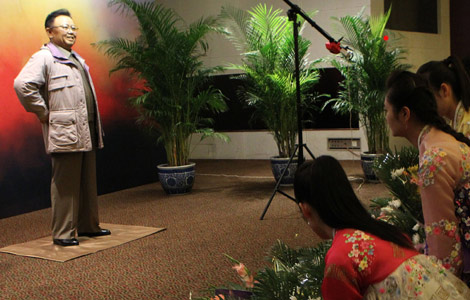
 China donates wax figure of Kim Jong-il to DPRK
China donates wax figure of Kim Jong-il to DPRK
 Thousands pay final tribute to US firemen
Thousands pay final tribute to US firemen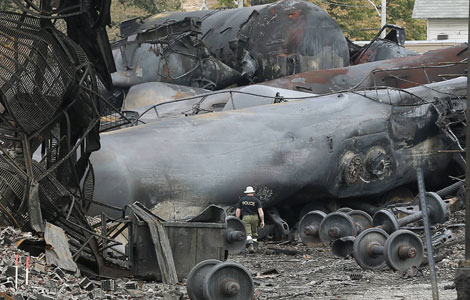
 Dozens feared dead in Quebec derailment
Dozens feared dead in Quebec derailment
 Breathe deep, this is the real thing
Breathe deep, this is the real thing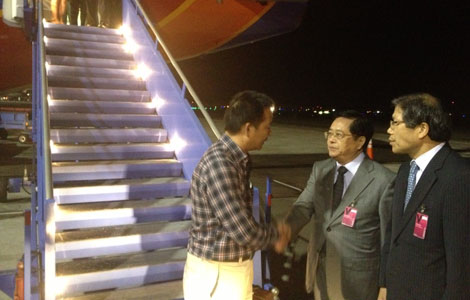
 Families of crash victims in SF
Families of crash victims in SF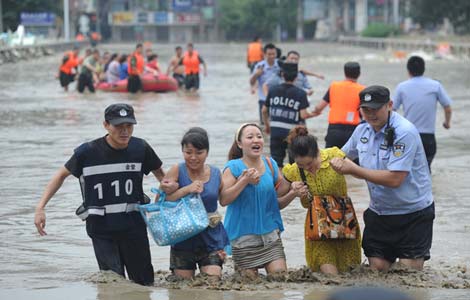
 Rainstorms cause severe flooding and landslides
Rainstorms cause severe flooding and landslides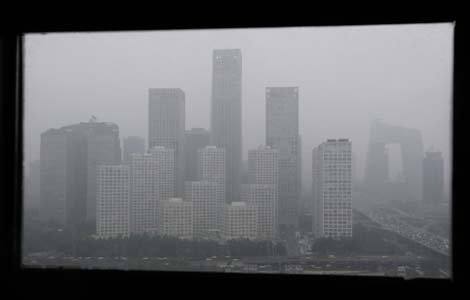
 Coal burning in China's north can shorten lives
Coal burning in China's north can shorten lives
 Some solar companies see brighter first half
Some solar companies see brighter first half
Most Viewed
Editor's Picks

|

|

|

|

|

|
Today's Top News
Pilots in air crash relied on automatic equipment
Chinese companies could face US delisting
High-level China-US talks to kick off
Watchdog: Trans-fat levels meet standards
IMF cuts China's, world's growth
Most passengers on crashed plane reported safe
Shenzhen Red Cross denies organ claim
Rainstorms cause severe flooding and landslides
US Weekly

|

|







